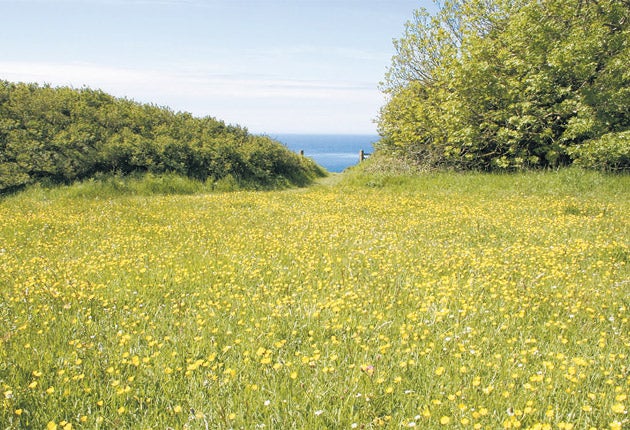Rural watchdog posts to be among first to go in race to cut deficit

Natural England, the Government's wildlife watchdog body, is planning to slash nearly a third of its 2,500 jobs in Britain's biggest-ever cutback in wildlife and countryside protection.
Environmentalists fear the move, to cut 800 jobs, will be the first of many which will put at risk the schemes bringing back Britain's most damaged species, such as the farmland birds whose numbers have halved in the last 40 years.
The cuts have been sketched out in anticipation of a 30 per cent budget reduction from Natural England's sponsoring department, the Department for Environment, Food and Rural Affairs (Defra).
Overtime payments to police and the Trident nuclear submarine fleet could also be targets in government spending cuts, it emerged yesterday.
The Natural England job losses will be phased in over four years but 400 of the jobs are likely to go in the next financial year, according to an email to staff from the chief executive, Dr Helen Phillips.
Although some will be through natural wastage – Natural England already has a recruitment freeze – staff regard it as inevitable that there will be significant redundancies and cutbacks to frontline conservation programes.
"These cuts will present a severe threat to Britain's wildlife," said Paul de Zylva, chairman of Wildlife Link, the umbrella body which represents all of the principal wildlife conservation groups. "British wildlife and the places people cherish are already on the edge because of decades of neglect by successive governments."
Yesterday 25 of Wildlife Link's member organisations, representing everything from bugs and whales to badgers and bats, said loss of funding would leave the country's best wildlife sites and habitats degraded and rare species rapidly vanishing.
"Defra and its agencies like Natural England spend just 0.5 per cent of the Government's budget, yet their investment in the countryside brings huge benefits in wildlife, clean air and water, flood alleviation, carbon sequestration and pollination," Mr de Zylva said.
A major concern of conservationists is that a prime target for cuts, after jobs at Natural England, will be the millions spent on agri-environment schemes, the entry-level and higher-level stewardship programmes which pay farmers to farm in a way which helps wildlife directly.
Farmer Andrew Holland, of Ormskirk, Lancashire, who has some of Britain's most threatened farmland birds flourishing on his farm because of the measures he takes to encourage them under the schemes, such planting special crops for winter bird food, said if the payments were scrapped, he would find it hard to carry on. "We've got bills to pay the same as anybody else and it would make it a lot more difficult."
Overtime payments to police are also to be slashed by the Home Office in the drive to find massive savings in government spending. The department is being asked to draw up plans to cut its £10bn budget by at least £2.5bn by the autumn.
In an effort to avoid thousands of police redundancies, ministers are planning a clampdown on overtime pay.
An estimated £500m is paid out in overtime by English and Welsh police forces annually and the case of a London police constable who topped up his basic salary of £35,000 to more than £100,000 emerged last year.
Police sick pay arrangements and pension plans – widely seen as among the most generous in the public sector – will also be targeted.
A Home Office reform plan setting out its priorities disclosed that a full review of "remuneration and conditions of service for police officers and staff" would report by next January.
The moves are bound to put the police on a collision course with the Government, but ministers are likely to respond that the savings are essential in order to avoid redundancies.
The Home Office document also signalled that it would encourage forces to save money by pooling resources or even considering voluntary mergers. The chief constables of the Hertfordshire and Bedfordshire forces have floated the idea of merging with an eventual yearly saving of £15m.
One Home Office official said the "hideous" cuts they were being asked to contemplate were "so harmful that no one will want them to make them".
An equivalent document from the Ministry of Justice (MoJ) disclosed that plans to cut the legal aid bill would be published in the autumn. Moves to close underused courts are due to begin at the same time.
Kenneth Clarke, the Justice Secretary, has said the MoJ is considering shutting 103 magistrates' courts and 54 county courts saving £37m a year.
Liam Fox, the Defence Secretary, said the "absolute mother of horrors of a spending review" could force the Government to scale the Trident nuclear fleet back from four submarines to three.
Join our commenting forum
Join thought-provoking conversations, follow other Independent readers and see their replies
0Comments